by Aaron Popich
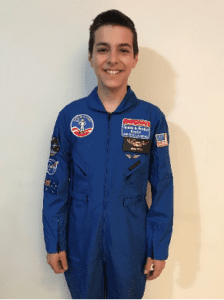 I am a student ambassador for One Giant Leap Australia and an Australian Air Force Cadet. I recently had the opportunity to attend Space Camp in the U.S.A. It was an incredible opportunity in itself, and I learnt a lot from being there. However, the greatest spinoff for me, personally, was getting to meet a variety of professionals in the field and seeing the scope of study, engineering and research happening. During the trip I spoke to NASA JPL engineers as well as astronauts and scientists at The Spaceship Company, Northrop Grumman and Space Camp. I realised the extent of expertise needed for any successful mission.
I am a student ambassador for One Giant Leap Australia and an Australian Air Force Cadet. I recently had the opportunity to attend Space Camp in the U.S.A. It was an incredible opportunity in itself, and I learnt a lot from being there. However, the greatest spinoff for me, personally, was getting to meet a variety of professionals in the field and seeing the scope of study, engineering and research happening. During the trip I spoke to NASA JPL engineers as well as astronauts and scientists at The Spaceship Company, Northrop Grumman and Space Camp. I realised the extent of expertise needed for any successful mission.
Since that trip, I have continued to learn, through a variety of opportunities given to me by One Giant Leap Australia, the Australian Air Force Cadets and my school. When sharing my newfound knowledge and experiences with other students who are interested in science, aeronautics and space, I have seen a common thread in their responses. Across the board, other students wish that they could have the same opportunities that I have. Some even feel like they have missed out on an opportunity and, consequently, that door is now shut to them. That could not be further from the truth! There are a myriad of ways to become involved in this industry and numerous pathways to follow if you wish to pursue a career in this field.
I have interviewed some impressive professionals in the field, to see how they got to where they are today. These amazing people are Australians who are achieving remarkable things around the world. I asked for their advice to others who dream of a future similar to theirs.
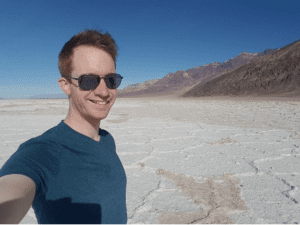 The first person I had the honour of interviewing is Casey Handmer. He is a software system architect for NASA’s jet propulsion laboratory. I can honestly say that I stand in awe of the work he gets to do each day! Casey Handmer started out by studying a Bachelor of Science at the University of Sydney and then went on to do his doctorate in California. This opened the door to an intern position in Los Angeles, which in turn lead to a position as a levitation engineer (which really is as cool as it sounds, go and look up his Linked in profile if you want to read more about all his different projects). Finally, he made it all the way to NASA, where he now does even more amazing stuff.
The first person I had the honour of interviewing is Casey Handmer. He is a software system architect for NASA’s jet propulsion laboratory. I can honestly say that I stand in awe of the work he gets to do each day! Casey Handmer started out by studying a Bachelor of Science at the University of Sydney and then went on to do his doctorate in California. This opened the door to an intern position in Los Angeles, which in turn lead to a position as a levitation engineer (which really is as cool as it sounds, go and look up his Linked in profile if you want to read more about all his different projects). Finally, he made it all the way to NASA, where he now does even more amazing stuff.
Casey Handmer gave some really good advice about school. He said that he was not the top student in early high school, and there were a number of things that he was not great at, but he came to the realisation that if he wanted to achieve certain things, and get to the next step, he just had to be prepared to try harder. According to him, even if you are at the top of your game at my age, there is still a long way to go! He left me with the sense that I should be encouraged by this, as he/she with the most grit and determination is going to be the one to get there in the end.
Casey Handmer recommends studying a lot of maths courses (as much as you can stand, was his pithy description) as well as physics, which gives you a toolset for breaking down complex problems into chunks that can be analysed. He says, physics is the best way he knows of to learn applied critical thinking, but only if you actually learn it (not just scrape through it for the sake of getting that piece of paper at the end of a degree). Casey advises that the particular university you study at is not critically important, but it is important to acquire a balanced skillset.
So, if you have a dream, knuckle down and work for it! In school and university, grades are a means to an end and once you reach the point of interviewing for job positions, you can’t expect to get everything you go for right off the bat. Casey Handmeer interviewed three times over five years, before he, finally, got the JPL position at NASA. Hard work, persistence and perseverance are important. Casey’s closing statement to me was this, “If I was doing it all again, I think I would still study physics, but I’d listen more and spend more time at the library. Keep a more open mind about stuff that I, in retrospect, still knew nothing about.”
The second remarkable Australian I had the joy of interviewing, is Benjamin Morrell. He is a Robotics Technologist at the NASA Jet Propulsion Laboratory. How awesome that his work allows him to play around with the newest technology in robotics!
Benjamin Morrel’s role encompasses many aspects of robotics research, with a specific focus on localization (helping a robot know where it is), and mapping (working out what is around the robot). This involves using maths algorithms, writing code, testing with robots, and then iterating on it. A lot of this work is done in a team, which involves leading and supporting team members, brainstorming together, discussing ideas, and planning what needs to be done in order to achieve their goals.
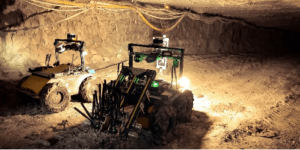 In order to get where he is today, Benjamin Morrell went to Illawarra Grammar School in Wollongong, and excelled at mathematics and science, after which he studied Aeronautical and Space Engineering at the University of Sydney. He completed a PhD at the University of Sydney, with time spent at Texas A&M University, and as an intern at the NASA Jet Propulsion Laboratory (JPL). He then did a Postdoc at JPL, before being hired there full-time. What an achievement!
In order to get where he is today, Benjamin Morrell went to Illawarra Grammar School in Wollongong, and excelled at mathematics and science, after which he studied Aeronautical and Space Engineering at the University of Sydney. He completed a PhD at the University of Sydney, with time spent at Texas A&M University, and as an intern at the NASA Jet Propulsion Laboratory (JPL). He then did a Postdoc at JPL, before being hired there full-time. What an achievement!
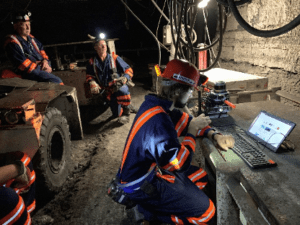 Ben says that technical, communication, teamwork, and networking skills are very important if you wish to follow a career in the aerospace industry. His experience has been that many opportunities came from knowing amazing people, and having worked hard in his previous opportunities. Benjamin Morrell gives others this fantastic advice, “In pursuing big goals, my advice is to take every opportunity that comes to you and dive into it with full energy and enthusiasm. This will lead to more opportunities coming your way, which will lead to more opportunities, on, and on until you will get somewhere doing amazing things.”
Ben says that technical, communication, teamwork, and networking skills are very important if you wish to follow a career in the aerospace industry. His experience has been that many opportunities came from knowing amazing people, and having worked hard in his previous opportunities. Benjamin Morrell gives others this fantastic advice, “In pursuing big goals, my advice is to take every opportunity that comes to you and dive into it with full energy and enthusiasm. This will lead to more opportunities coming your way, which will lead to more opportunities, on, and on until you will get somewhere doing amazing things.”
His advice really resonated with me and my experiences with One Giant Leap this past year. It has certainly been my experience that one open door can lead to another, if you give everything your best shot, especially if it seems intimidating or difficult.
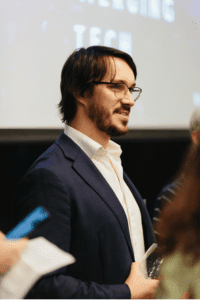 Another inspirational professional in the space industry is Troy McCann. He is the CEO and founder of Moonshot. Moonshot makes it easier for people and companies to build and invest in space technologies. Moonshot is connecting people across the globe with the resources they need.
Another inspirational professional in the space industry is Troy McCann. He is the CEO and founder of Moonshot. Moonshot makes it easier for people and companies to build and invest in space technologies. Moonshot is connecting people across the globe with the resources they need.
Troy McCann is an Electrical Engineer, with a degree from the University of Melbourne. He also studied Computer Science and spent time at Monash Uni and RMIT. Troy feels that the most important skill he has is being motivated to learn about new things and to find ways to use those new skills and experiences. He advises that having a degree is useful, but a significant benefit of university for him was the time, tools and connections to create and grow his own projects, where he learned a lot more than he otherwise would have. Troy is clearly an innovative man.
Troy McCann has these inspirational words for others, “Find a big problem you’re passionate about solving, break it down into smaller chunks that you can work towards solving one at a time. It might take years, but you’ll get there if you chip away at it a little bit every day. Life is like a big, long video game. Except it’s up to you to choose what your levels are and the big boss you want to beat!”
Troy advises us to solve big problems that hold us back, using our own skills in collaboration with others. He says, “As you walk your own path and make the world a better place, society will reward you handsomely in return.”
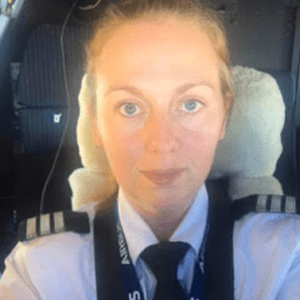 The next noteworthy person I was privileged enough to interview is Sally Jones Tindall. She is an international airline pilot for Virgin Australia as well as an Astronaut Candidate for AdvancingX. How amazing is that! Prior to Covid-19 turning everything upside down, Sally Tindall was using her time away from home to study, do research and train for being an astronaut.
The next noteworthy person I was privileged enough to interview is Sally Jones Tindall. She is an international airline pilot for Virgin Australia as well as an Astronaut Candidate for AdvancingX. How amazing is that! Prior to Covid-19 turning everything upside down, Sally Tindall was using her time away from home to study, do research and train for being an astronaut.
Sally Tindall went to high school in Glen Waverley, then studied at Monash University. Following this, she attended RMIT, Swinburne University and, ultimately the University of Texas! Initially, she did not consider herself the best student but once she found study courses she loved, then she became much more motivated. She jokes that she now considers herself addicted to studying and research!
Sally Tindall grew up with brothers who raced cars, and she was, consequently, fascinated by speed. She was inspired to learn to fly as planes are even faster than race cars and was later motivated to go to space. Sally remembers when she was growing up that there really was only one clear path to space. Everyone needed to fly, and go through the US. However, she says that now (with SpaceX, Blue Origin, Virgin Galactic, EASA and all the others), there are many different pathways to space. She says Mars is going to need geologists and psychologists just as much as engineers and physicists.
Sally’s advice is to ignore your ATAR score. She feels a bad score should not hold you back. Her advice is, “If you don’t get into the course you want, then do a similar course and matriculate across a year later. Go and do work experience and then apply again as a mature student with life experience.” Another gem of advice she gave me was that being successful is all about reinvention. She says, “Take every opportunity. Looks for gaps in industry and find a way to be an expert at filling those gaps. Mostly, have fun whilst doing it.”
The next inspiring individual I was fortunate enough to interview, was Alice Gorman. She works at Flinders University in Adelaide. Alice Gorman is an Associate Professor in Archaeology and also a mentor in the United Nations Office of Outer Space Affairs Space4Women Network.
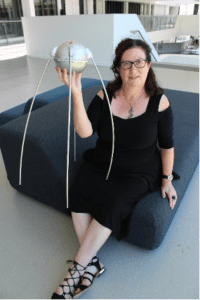
Alice Gorman agrees with Sally Tindal, that there are many ways people can get involved in space. Alice’s inspirational work involves researching the artefacts and places associated with space exploration; a field known as space archaeology. Currently she is working on the archaeology of the International Space Station. What an amazing job she has!
The work Alice Gorman is involved in looks at the objects which astronauts use to create a unique space society. Alice says, “A society which functions harmoniously is a critical factor if humans are going to live on the Moon or Mars, and we don’t yet know in what ways material objects contribute to that.”
Alice Gorman did an archaeology degree at the University of Melbourne, and then worked as a heritage consultant. This job involved recording Aboriginal archaeological sites before they were destroyed by mining or other development (although sometimes they were successful in saving the sites). Later Alice did a PhD at the University of New England on stone tools. However, a few years later, Alice came to the realisation that she could apply her archaeological skills to all the space junk in orbit. Alice says, “It was a lot of hard work to convince people that space archaeology could be a real thing, but I think I have achieved that.”
Personally I (Aaron) find it encouraging and inspiring to see the vast diversity in space career paths. Alice Gorman advises others who wish to become a space archaeologist, to study a double degree in archaeology and a science like physics, astronomy, or engineering. She left me with these words, “There aren’t any jobs just yet for space archaeologists outside universities and museums, but I expect that to change as humans start carrying out more activities on other planets. It’s a job for the future!”
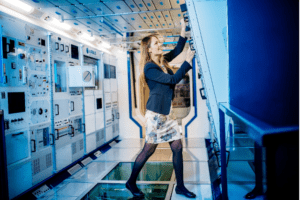 The final inspirational Australian that I had the honour of interviewing, was Katherine Bennell. She works at the Australian Space Agency as Assistant Manager of Program and Capability, within the technical team that is responsible for the scoping and delivery of projects, as well as fostering the development of space capability across the country. Her main task is to lead a project team to develop the Australian Space Agency’s first Roadmaps. Furthermore, she is also responsible for the ‘Robotics and Automation on Earth and in Space’ Strategic Priority Area. What an inspiration she is!
The final inspirational Australian that I had the honour of interviewing, was Katherine Bennell. She works at the Australian Space Agency as Assistant Manager of Program and Capability, within the technical team that is responsible for the scoping and delivery of projects, as well as fostering the development of space capability across the country. Her main task is to lead a project team to develop the Australian Space Agency’s first Roadmaps. Furthermore, she is also responsible for the ‘Robotics and Automation on Earth and in Space’ Strategic Priority Area. What an inspiration she is!
Katherine Bennell spent her early career in the UK as a Mission Systems Engineer for EO and science missions, before transitioning into a Thermal Architect role for Lisa Pathfinder. She then relocated to Germany in the role of Project Manager and System Engineer, where she delivered multiple projects in the fields of space robotics and human spaceflight. Most recently, she was the ‘Business Capture and Service Operations Lead’ for the Bartolomeo facility on the ISS.
Katherine Bennell says that working in the space industry is incredibly rewarding and involves collaborating with others in a global ecosystem, united together by a passion for space that transcends cultures. Her advice to aspiring professionals is to network well, bearing in mind that the space industry is small. She also advises students to start doing space work now, by seeking out opportunities to develop or research something new and to also connect with international projects. Furthermore, Katherine advises that professionals spend the first few years of their career building their depth and breadth of knowledge and experience. I really loved Katherine Bennell’s advice to cherish not being the smartest in the room and to let go of the fear of being exposed as knowing less than others around you. I certainly have a lifetime of learning ahead of me, so that resonated well with me.
All these inspiring individuals that I was fortunate enough to converse with, have one thing in common: they were not born as the amazing professionals they are today! In fact, they didn’t have their life plan all mapped out at 16 either. They followed an interest, which lead to an opportunity, which in turn opened a door to something else. Furthermore, they have not stopped learning or aiming for the next remarkable thing! They are working hard, persisting, trying again, and reinventing themselves when need be.
So, come with me on this journey, we can all join our different passions, aptitudes and interests together, and let our dreams take flight.
Read more about Aaron here!





